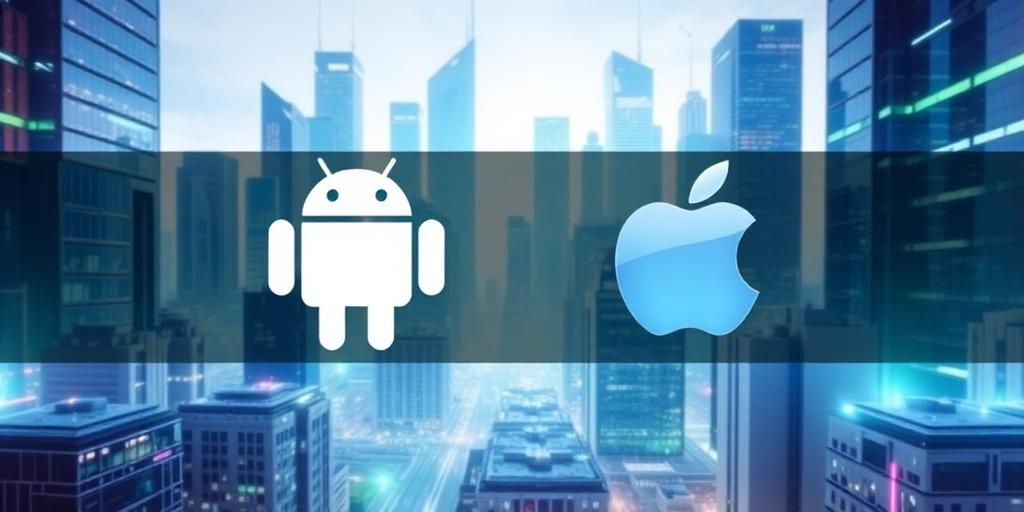Android vs. iOS: A 2025 Comparison
The mobile operating system landscape is dominated by two giants: Android and iOS. As we approach 2025, understanding their trajectories, strengths, and weaknesses becomes paramount for consumers, developers, and businesses alike. This analysis provides an authoritative comparison, examining key aspects that will define the Android vs. iOS debate in the coming years.
Ecosystem and Device Diversity
Android: Android's open-source nature fosters a highly diverse ecosystem. This translates to a wide range of devices, from budget-friendly options to high-end flagships, offered by numerous manufacturers. This diversity ensures accessibility for various consumer segments.
iOS: Apple maintains tight control over its ecosystem, offering a limited range of devices, all designed and manufactured in-house. This controlled environment allows for greater hardware-software optimization and a consistent user experience across devices.
2025 Outlook: Android will likely maintain its lead in market share due to its device diversity and affordability. iOS will continue to cater to users who prioritize seamless integration, premium design, and ecosystem exclusivity.
User Experience and Interface
Android: Android's user interface has evolved significantly, offering increased customization options and improved fluidity. However, fragmentation across different devices and versions can lead to inconsistencies in user experience.
iOS: iOS is known for its intuitive and user-friendly interface, characterized by simplicity and ease of navigation. Apple's consistent design language ensures a uniform experience across all its devices.
2025 Outlook: Both operating systems will likely continue to refine their user interfaces, focusing on enhanced personalization and accessibility. Android may further address fragmentation issues, while iOS will likely introduce more advanced customization options.
App Ecosystem and Development
Android: The Google Play Store boasts a vast selection of apps, catering to diverse needs and interests. Android's open platform allows for greater flexibility in app development, but also presents challenges in maintaining security and quality control.
iOS: The Apple App Store is renowned for its stringent quality control and curated selection of apps. iOS developers benefit from a more standardized environment, leading to optimized performance and security.
2025 Outlook: Both app stores will likely continue to expand their offerings, with a focus on emerging technologies like AR/VR and AI-powered applications. Android may implement stricter security measures, while iOS may explore more open development practices.
Security and Privacy
Android: Android's open nature makes it more vulnerable to security threats and malware. However, Google has made significant strides in enhancing security features and providing regular updates.
iOS: iOS is widely regarded as the more secure operating system due to Apple's strict app review process and robust security protocols. Apple's commitment to privacy has also made it a preferred choice for privacy-conscious users.
2025 Outlook: Security and privacy will remain paramount concerns for both platforms. Android will likely continue to strengthen its security measures, while iOS will further emphasize its privacy-focused approach.
Performance and Efficiency
Android: Performance on Android devices can vary depending on hardware specifications and optimization. However, advancements in processor technology and software optimization have significantly improved Android's performance.
iOS: iOS devices are known for their smooth and responsive performance, thanks to Apple's tight control over hardware and software integration. iOS devices also tend to be more energy-efficient.
2025 Outlook: Both platforms will likely continue to optimize performance and efficiency, leveraging advancements in processor technology and AI-powered optimization techniques. Battery life will remain a key area of focus.
Conclusion
In 2025, both Android and iOS will continue to evolve and compete for dominance in the mobile operating system market. Android will likely maintain its lead in market share due to its device diversity and affordability, while iOS will continue to cater to users who prioritize seamless integration, premium design, and ecosystem exclusivity. The choice between Android and iOS will ultimately depend on individual preferences, priorities, and budget considerations.
Long-Tail Keywords:
- Android vs. iOS comparison 2025
- Future of Android and iOS
- Android vs. iOS security 2025
- Android vs. iOS performance comparison
- Best mobile OS 2025









